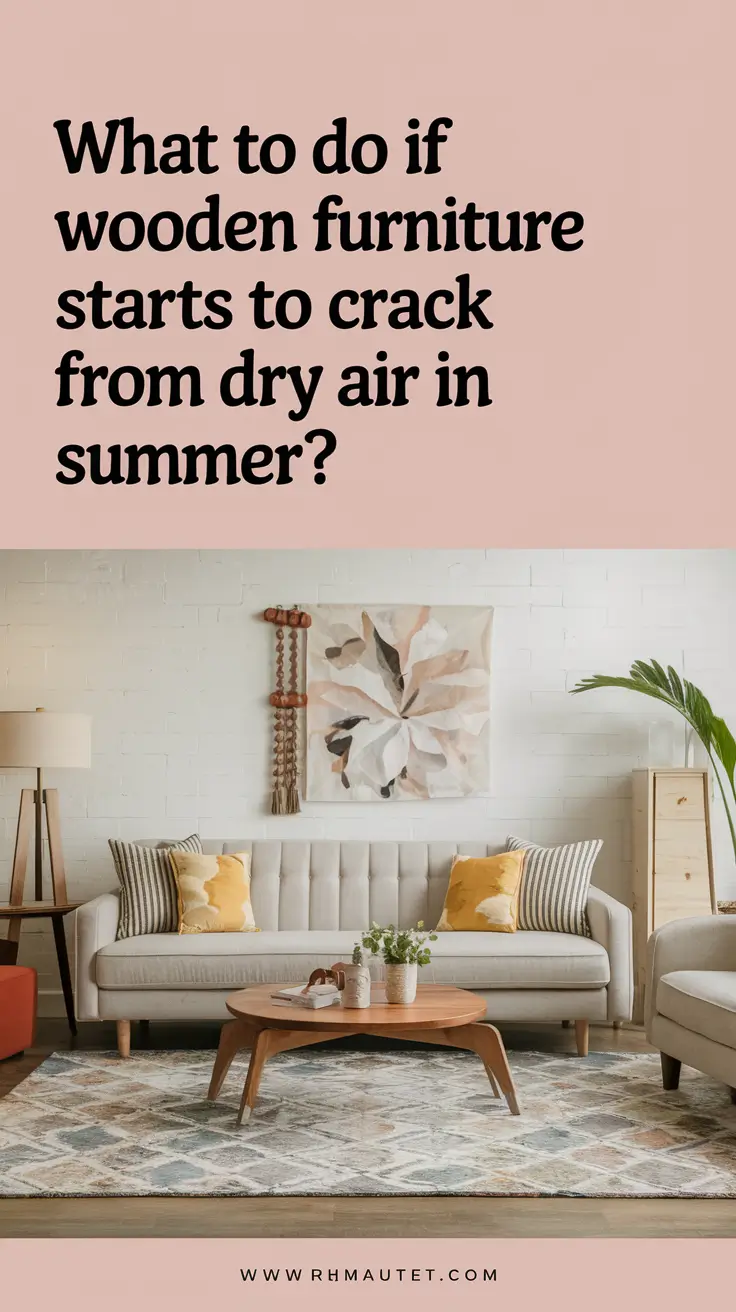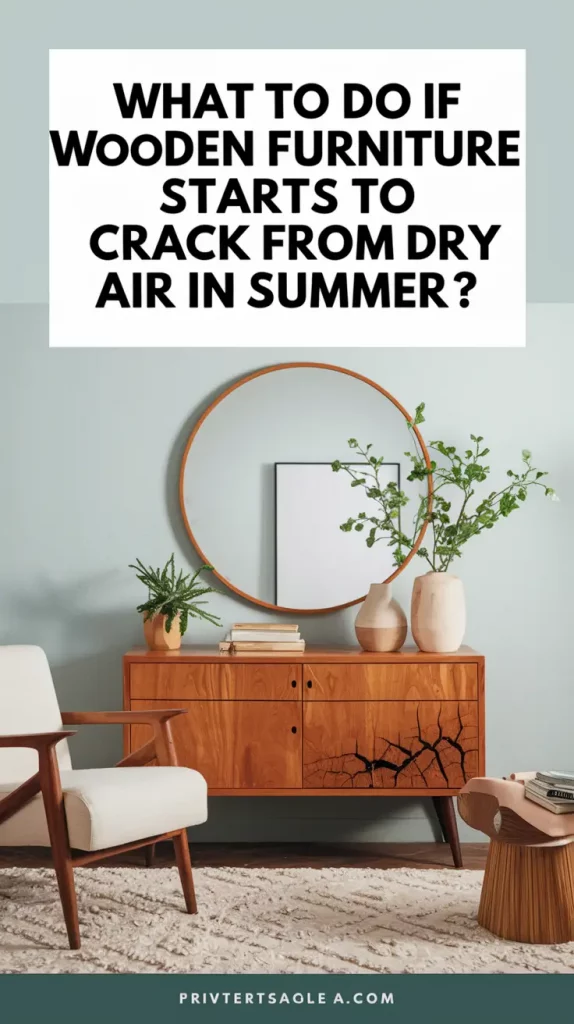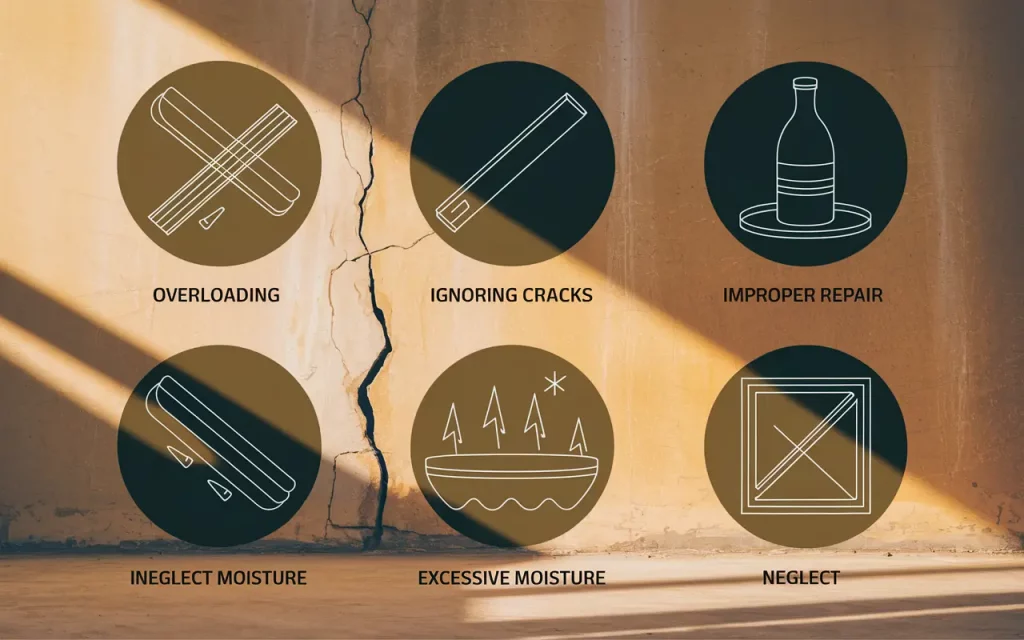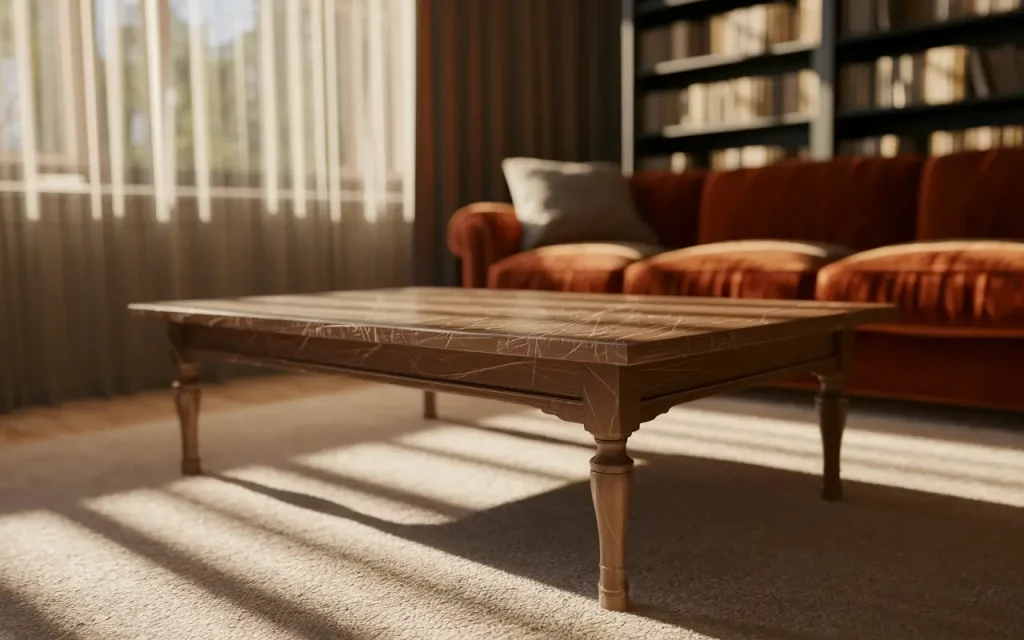What to Do If Wooden Furniture Starts to Crack from Dry Air in Summer 2025?

What Causes Cracking of Wooden Furniture During Summers?
Like all things in nature, wood tries to react to its environment even after it is transformed into a piece of furniture. During the summers, the Indoors are relatively hotter than the outdoors and the temperatures combined with the constant use of air conditioning means the air becomes drier. Wooden furniture salaries absorb the moisture around them, this will leads to the wood shrinking and warping, sometimes even cracking.

Excessive Dry Air is Harmful to Wood
The wooden structures release and absorb moisture according to the humidity levels present around it, in balanced conditions the wood expands in humid months and shrinks in drier months. However, excessive dryness, like what many homes went through during the summer of 2025, is a push beyond the materials breaking point.
Indications that Your Furniture is Drying Out
- Hairline surface cracks or splits
- Creaking and popping sounds
- Tight or misaligned angles or joints
- Deformed surfaces
- In July, has the dining table started creaking more than usual? Chances are, it’s got nothing to do with your imagination.
5 Commonly Made Mistakes That Worsen Cracking
Knowing what you must not do is equally important as explaining how to rectify the issue. It is recommended that these mistakes be avoided as they hasten damage:
1. Using AC Without a Humidifier
The use of air conditioning drastically decreases moderation indoors. It is beneficial to add a humidifier because without it, moisture levels can drop below 30%. This is damaging for wooden structures.
2. Keeping Wooden Furniture Next to Heat Sources
Sunlight coming directly from the sun, radiators or vents unevenly dries wood. This causes cracking and fading.
3. Not Performing Seasonal Wood Care
Oiling or waxing wooden furniture helps retain moisture, therefore skipping these tasks is likely to make it difficult to protect fragile wooden furniture.
4. Cleaning It with Harsh Products
Such cleaners strip wood of its natural oils. Alcohol-based or ammonia containing sprays are should be avoided.
5. Denying Blatant Early Signs
Many people tend to wait until significant bonds become visible. Creaks, joint misalignment and small discolorations are early warning signs that too many people ignore.

What Not to Do with Dry Air (Comparison Chart)
Minimal oiling or waxingBrittle surfaces, increased agingWood oil every fourth season
| Miscalculation | Outcome | Recommended Solution |
|---|---|---|
| Without humidifier | Moisture less than 30% | Cool Mist Humidifier |
| Furniture beside AC or direct sunlight | Inefficient exposed drying, Cracking, fading. | Reposition or Install UV protective window film |
| Using strong cleaning agents | Lower wood’s protective oils | PH neutral wood cleaner |
| Not acting fast enough on damage: | Neglected problems become expensive | Monthly inspections |
Step-by-Step: Methods to Restore Wooden Furniture
Restoring wooden furniture isn’t difficult as long as you have the appropriate equipment and a proper routine.
Step 1: Check Humidity Levels
Purchase a digital hygrometer. The ideal indoor humidity for wood is 40% to 55%, measured relative.
- Use a cool-mist humidifier if humidity is lower than 35%.
- Be cautious of over mist. It can damage finishes.
Step 2: Protect Finish with Oils or Waxes
Wood-safe oil evaporates slower than water giving it a sealed look. The best options are:
| Product Type | Best For | Notes |
|---|---|---|
| Tung Oil | Deep conditioning | Rich finish with good penetration |
| Beeswax Polish | Surface protection & shine | Simple to apply, monthly reapplication recommended |
| Danish Oil | General conditioning | A mix of oil and varnish |
Step 3: Resituate with Care
Avoid direct sunlight and vent airflow to furniture. Move to a safe area or use curtains or UV window film to guard delicate items.
Step 4: Preventive Maintenance
Develop a maintenance month plan:
- Dust off surfaces using a soft dry cloth
- Polish surface oil or wax if dull
- Inspect joints and seams
- Check position for proximity to heat sourcesTip: To raise humidity without raising the temp phs: Heat use a water bowl near the heating unit.
What Furniture Items Are Most Exposed To Risk?
Certain items are more exposed due to the particular wood used or the structural design.

Dining Tables and Chairs
Large flat surfaces show cracking sooner. Tension from seating also stresses joints.
Cabinets and Dressers
Paneling and filigree can shrink unevenly, causing warping.
Antiques
Older pieces may use glues and finishes not designed for climate extremes. Handle with extra care.
What About Painted Wood?
Even painted surfaces are at risk. Paint may conceal damage until it’s advanced.
Managing Humidity Indoors in Summer 2025
Maintaining humidity can be simple and affordable.
Target Humidity Range
Keep your indoor humidity between 40% and 55%.
Tools for the Job
- Cool-mist humidifiers: Ideal for bedrooms and living spaces.
- Houseplants: Natural humidifiers (try peace lilies or areca palms).
- Water trays: Place behind furniture or near vents.
Simple Hacks
- Dry laundry indoors (occasionally)
- Use stovetop simmer pots
- Add an indoor fountain
- Have you tried placing a humidifier next to your bookcase? You might be surprised how well it works.
Latest Trends in Wood Care for 2025
Wood care has evolved. Modern solutions are safer, smarter, and more eco-conscious.
Smart Humidity Sensors
Connected devices now alert you when levels drop. Some pair with humidifiers for auto-adjustment.
Plant-Based Oils
Cleaner, non-toxic alternatives to chemical polishes are gaining traction.
Built-in Humidification Systems
Some homeowners now install whole-house humidity control with HVAC integration.

Final Thoughts: Engaging the Audience and Key Summary
This is what is most critical:
- The threat wooden furniture faces from dry air in the summer of 2025 is concerning.
- Caring for furniture differently each season helps; monitoring humidity levels is key.
- Excessive sunlight and lack of oils could seem harmless, but avoiding these is crucial.
- Maintaining equilibrium indoors requires the use of smart or natural materials.
- Beauty and structural integrity are achieved through regular upkeep.
Have you noticed anything different about your furniture during the summers? Which tips and tricks do you use to protect your wood? Comment below.
📤 If you, like friends or neighbors, love hardwood tables, forward this article to them.
